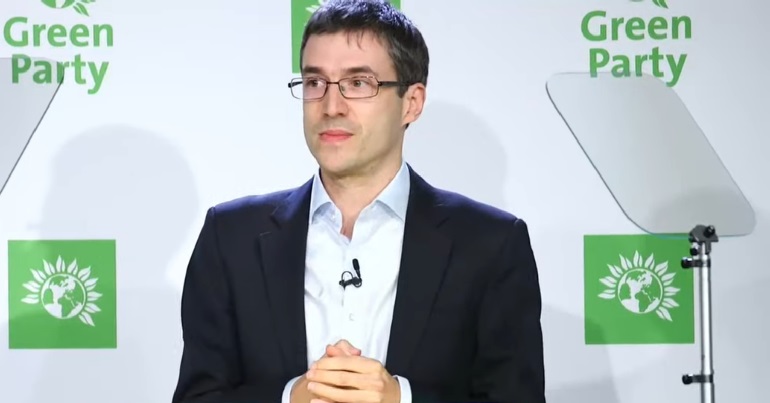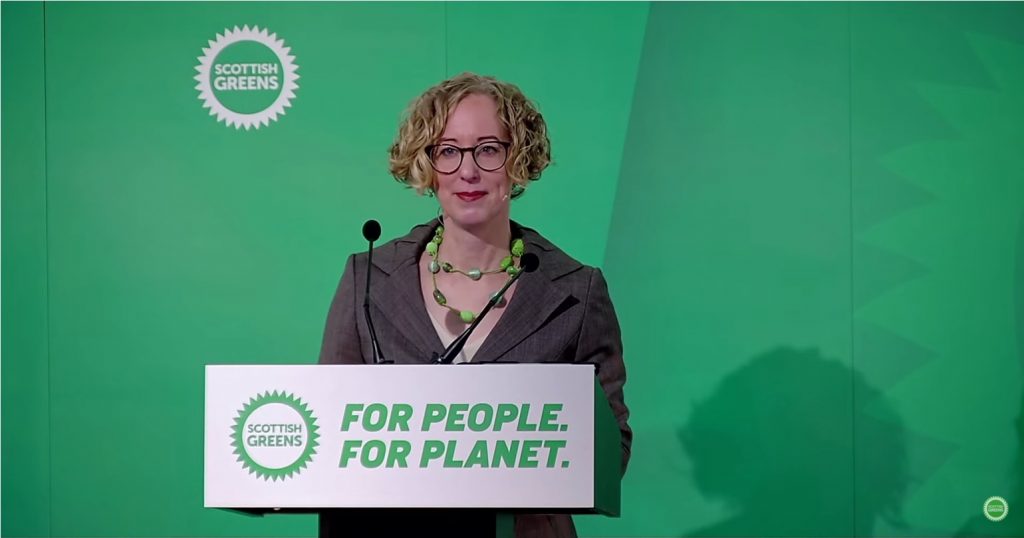Adrian Ramsay slams government’s decision to lift fracking ban

The Westminster government today confirmed its decision to lift the ban on fracking. The move will reverse the 2019 moratorium which prevented fracking across England. Fracking is a controversial method of gas extraction which uses pressurised liquid to release gas from rock layers underground.
The decision to end the fracking ban was announced by the new secretary of state for business, energy and industrial strategy Jacob Rees Mogg. There are already 151 granted licenses for exploration and development of fracking across England. Analysis from the Guardian suggests that these licenses encroach on environmentally protected areas, including national parks and areas of outstanding natural beauty.
The move has been slammed by the Green Party of England and Wales co-leader Adrian Ramsay, who branded fracking “expensive and dangerous”. He said, “Fracking will deepen our country’s dependence on fossil fuels. It will not bring down fuel bills for people who are struggling and will cause more damage to local communities and to the climate.
“The government has chosen to ignore warnings from its own advisers that fracking cannot restart without significant dangers of renewed localised earthquakes.
“The most effective and sustainable way of bringing down the cost of living is to invest in insulating houses and massively ramping up home-grown renewable energy. Fracking is an expensive and dangerous distraction from that urgent goal.”
The government’s announcement comes as a new report from the British Geological Survey revealed that little progress has been made in reducing and predicting the risk of earthquakes caused by fracking.
The wider climate movement has also slammed the move to lift the ban on fracking
Friends of the Earth energy campaigner, Danny Gross, said, “Ripping up the rules that protect people from fracking would send shockwaves through local communities. This announcement suggests that the government is planning to throw communities under the bus by forcing them to accept ‘a higher degree of risk and disturbance’.”
Gross added, “The reality is that fracking will have a negligible impact on energy bills, while sending more climate-changing emissions into the atmosphere. Little wonder that it is one of the least popular forms of energy generation. The government should listen to the science and develop an energy strategy fit for the future, not one stuck in the failings of the past. That means investing in insulation and the UK’s vast resources of cheap, clean and popular renewables.”
Claire Stephenson from Frack Free Lancashire made similar comments. Stephenson said, “Fracking is a failed technology in the UK and should absolutely be confined to the past. We’ve witnessed more than 10 years of attempts to jack gas out of the ground in Lancashire, with no progress. There have, however, been uncontrollable earthquakes and structural damage – almost 200 reported claims. There’s also been colossal methane leaks, community disharmony, and most notable of all: zero commercial gas produced.
“We’re in a climate crisis with a desperate need for a clean, green energy future. Fracking will not make any positive impact on the UK’s energy needs or fuel bills, and any attempt to suggest it will, is blatant spin. We stand strongly opposed and united against fracking anywhere, and we will fiercely challenge this misguided administration’s attempt to backtrack on their Conservative Manifesto promise.”
PS. We hope you enjoyed this article. Bright Green has got big plans for the future to publish many more articles like this. You can help make that happen. Please donate to Bright Green now.
Image credit: YouTube screengrab




Leave a Reply